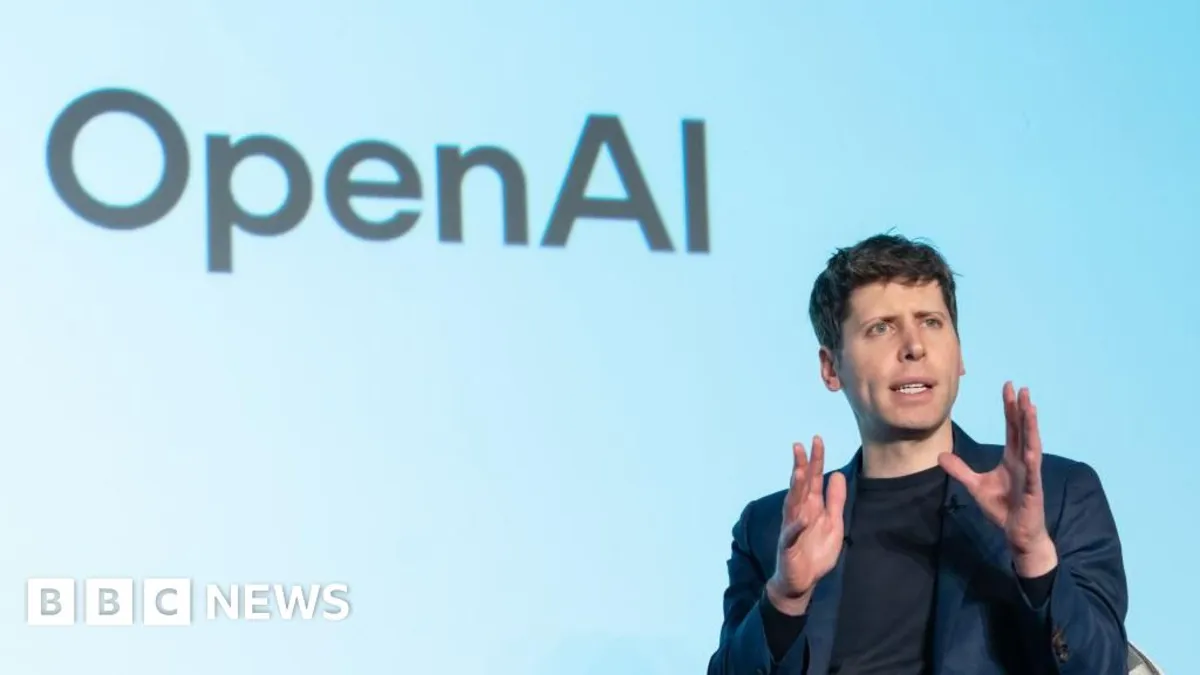
OpenAI has recently entered into a significant agreement with Amazon, securing a $38 billion (£29 billion) contract to access its robust cloud computing infrastructure. This partnership is a strategic move as OpenAI continues to forge major collaborations to enhance its computing capabilities, essential for the development of its advanced artificial intelligence technologies.
In 2025 alone, OpenAI has successfully signed partnerships worth over $1 trillion with various tech giants, including Oracle, Broadcom, AMD, and the renowned chip-making giant Nvidia. This latest contract with Amazon marks a pivotal shift, reducing OpenAI's previous reliance on Microsoft for its computational needs. The seven-year deal will allow OpenAI to utilize Nvidia's advanced graphics processors, crucial for training its AI models.
This announcement follows a significant restructuring at OpenAI, where the company transitioned away from its non-profit status. This change has altered its relationship with Microsoft, granting OpenAI greater operational and financial independence. According to Sam Altman, co-founder and CEO of OpenAI, "Scaling frontier AI requires massive, reliable compute." He emphasized that the partnership with AWS (Amazon Web Services) enhances the broad computing ecosystem necessary to propel the next era of AI technology, making advanced AI accessible to everyone.
The new agreement is a direct response to the soaring demand for computing power driven by the escalating interest in AI technology. Since the launch of ChatGPT in 2022, which brought AI into the consumer mainstream, OpenAI has been increasingly reliant on Microsoft for its computing resources. However, the exclusivity of their cloud agreement began to loosen earlier this year, paving the way for OpenAI's current partnership with AWS.
This collaboration with AWS signifies OpenAI's strategic shift away from Microsoft, focusing on diversifying its sources of computing power. Kim Forrest, chief investment officer at Bokeh Capital Partners, noted that OpenAI's decision to allow Microsoft a reduced control stake has opened doors to potential collaborations with other competitors of its funders. This shift is crucial for OpenAI as it seeks to solidify its position as a leader in AI technology.
Despite its ambitious growth, OpenAI has faced financial challenges, reporting substantial losses as it invests heavily in advancing its AI solutions. Recently, Microsoft disclosed that OpenAI incurred losses of approximately $12 billion in a single quarter. Following the announcement of the Amazon deal, however, Amazon's shares soared to an all-time high, increasing its valuation by $140 billion (£106 billion).
Matt Garman, CEO of AWS, remarked that their platform is uniquely positioned to support OpenAI's extensive AI workloads, further solidifying the partnership's potential. The intertwining relationships among leading AI firms have sparked discussions about the growing complexity of these collaborations, which should be monitored closely.
The recent spree of deals by OpenAI has led to speculation about the potential emergence of an AI bubble. In a recent interview with the BBC, Sam Altman acknowledged the unprecedented nature of current investment levels while also highlighting the rapid revenue growth experienced by AI companies. Nevertheless, cautionary messages have been issued by the Bank of England, the International Monetary Fund, and JP Morgan's Jamie Dimon, who indicated that the prevailing uncertainty in the market should not be underestimated.